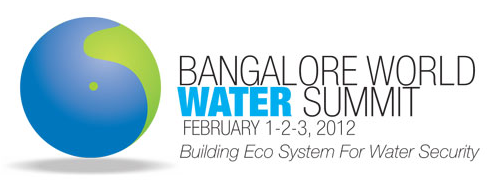Water Management
A river runs through us: An award-winning film on the threats faced by our rivers
Posted on 18 Nov, 2011 03:32 PMArticle and media courtesy: International Rivers
Creation of a village spring atlas for the conservation of Himalayan springs and adapting to climate change
Posted on 18 Nov, 2011 11:52 AMImage courtesy: http://sikkimsprings.org/
Living rivers, dying rivers: Rivers in North East India
Posted on 15 Nov, 2011 03:29 PMRivers in North-East India

PSIPW invites applications for 5th Prince Sultan Bin Abdulaziz international prize for water, Kingdom of Saudi Arabia - Apply by January 31, 2012
Posted on 15 Nov, 2011 09:34 AMContent courtesy: Fundforngos

Prince Sultan Bin Abdulaziz International Prize for Water (PSIPW) aims to give recognition to the efforts that scientists, inventors and research organizations around the world are making in water related fields.
Workshop on rainwater harvesting in Meerut’ - Janhit Foundation's e-newsletter of March 2011
Posted on 11 Nov, 2011 09:29 PMContent courtesy: Janhit Foundation
Rainwater Harvesting Users and Trainers' Manual by the KUIDFC
Posted on 10 Nov, 2011 12:03 PMAdequate potable water supply to the community has become an uphill task to the administration both in rural and urban areas. This is because of dwindling groundwater sources, over-extraction, pollution of surface water bodies, negligence of fresh water bodies, poor water management, etc.
Interstate river water disputes (IRWD) act (1956) and its legal provisions
Posted on 09 Nov, 2011 10:01 PMThis paper elaborates the techno – legal aspects of Interstate river water disputes act – 1956 which was enacted to resolve the water disputes among the basin states of an interstate river / river valley. This Act’s main purpose is to protect the interests of a downstream state when water resources available in an upstream state are put to additional use.
Interstate River Water Disputes Act – 1956 (IRWD Act) was first enacted on 28th August, 1956 by Indian parliament on the eve of reorganization of states on linguistic basis to resolve the water disputes that would arise in the use, control and distribution of an interstate river or river valley. This Act further has undergone amendments subsequently and its recent amendment took place in 2002. It also validates the previous agreements (if any) among the basin states to harness water of an interstate river/ river valley.
Water quality hot-spots in rivers of India – A report by Central Water Commission
Posted on 08 Nov, 2011 01:03 PM It evolves a methodology for identifying hot spots in Indian rivers. The water quality data is based on the average values observed during the last ten years (2001-2011) at 371 monitoring stations of CWC on almost all major, medium and minor rivers in India. In respect of Dissolved Oxygen and Biochemical Oxygen Demand, the Central Pollution Control Board's classification has been considered for evaluating the hot spot in the rivers.
It evolves a methodology for identifying hot spots in Indian rivers. The water quality data is based on the average values observed during the last ten years (2001-2011) at 371 monitoring stations of CWC on almost all major, medium and minor rivers in India. In respect of Dissolved Oxygen and Biochemical Oxygen Demand, the Central Pollution Control Board's classification has been considered for evaluating the hot spot in the rivers.
The physical and chemical quality of river water is important in deciding its suitability for drinking purposes. As such the suitability of river water for potable uses with regard to its chemical quality has to be deciphered and defined on the basis of the some vital characteristics of the water. Bureau of Indian Standards (BIS) vide its document IS: 10500:1991, edition 2.2 (2003‐09) has recommended the quality standards for drinking water and these have been used for finding the suitability of river water. On this basis of classification, the natural river water of India has been categorized as desirable, permissible and unfit for human consumption.
Bangalore World Water Summit, February 1 – 3, 2012, Bangalore
Posted on 07 Nov, 2011 01:15 PMOrganizers:
The summit is organized by Center for Sustainable Development (CSD), under the leadership of President Dr A Ravindra, IAS (retd.), Advisor to Chief Minister, Government of Karnataka. It is supported by Ministry of Urban Development, Government of India; Karnataka Water Board, Government of Karnataka; Institution of Public Health Engineers (India); Bangalore Water Supply and Sewage Board and Indian Water Works Association and Administrative Staff College (India).
CSD's mission is to promote sustainable development by identifying critical issues in the context of the present and the future and addressing them in a manner which will achieve sustainable outcomes. Its programs and methods are designed to promote the involvement of different stakeholders and build capacity to achieve sustainability across sectors. CSD works in close association with various government agencies, scientific institutions and civil society organizations.
Venue: Hotel Lalit Ashok, Bangalore

Training programme on "Result-Based Management of Development Interventions", December 1-2, 2011, New Delhi
Posted on 07 Nov, 2011 11:57 AMOrganization: Sambodhi Research and Management Institute
Venue: New Delhi
![]()
Sambodhi Research and Management Institute is a leading research and advocacy organisation that works to promote and demystify areas of knowledge, which would contribute to social as well as organizational development.







